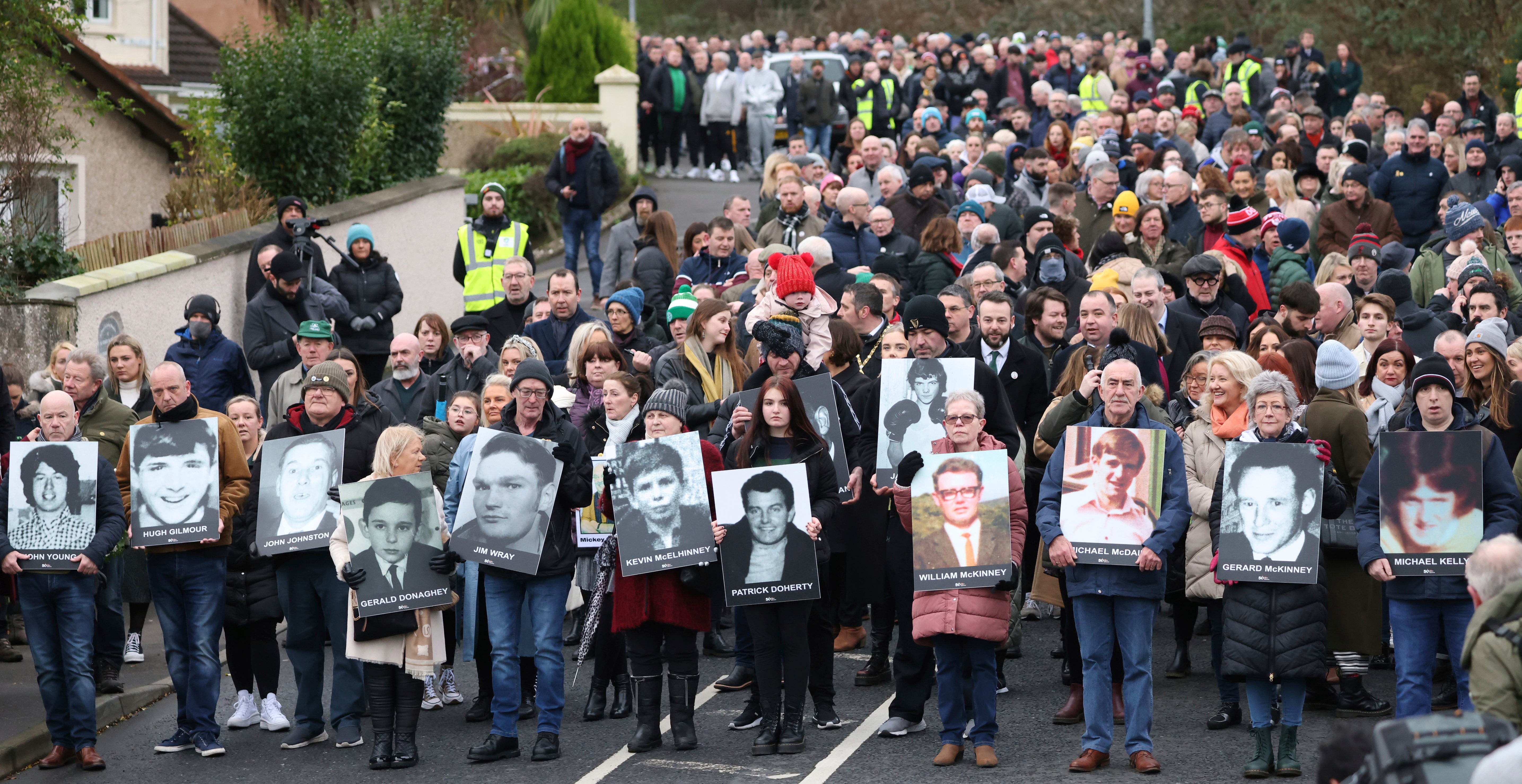Northern Ireland marks 50 years since Bloody Sunday
Relatives of those killed and injured on Bloody Sunday are marching in Northern Ireland to mark 50 years since one of the deadliest days in the conflict known as The Troubles

Your support helps us to tell the story
From reproductive rights to climate change to Big Tech, The Independent is on the ground when the story is developing. Whether it's investigating the financials of Elon Musk's pro-Trump PAC or producing our latest documentary, 'The A Word', which shines a light on the American women fighting for reproductive rights, we know how important it is to parse out the facts from the messaging.
At such a critical moment in US history, we need reporters on the ground. Your donation allows us to keep sending journalists to speak to both sides of the story.
The Independent is trusted by Americans across the entire political spectrum. And unlike many other quality news outlets, we choose not to lock Americans out of our reporting and analysis with paywalls. We believe quality journalism should be available to everyone, paid for by those who can afford it.
Your support makes all the difference.Relatives of those killed and injured on Bloody Sunday marched in Northern Ireland to mark 50 years since one of the deadliest days in the conflict known as The Troubles
Thirteen people were killed and 15 others injured when British soldiers fired on civil rights protesters on Jan. 30, 1972, in the city of Derry, also known as Londonderry
Hundreds made their way Sunday to the Bloody Sunday Monument for the annual memorial service and wreath-laying ceremony.
Britain’s government apologized in 2010 after an official inquiry found that the soldiers fired without justification on unarmed, fleeing civilians and then lied about it for decades. The report refuted an initial investigation that took place soon after the slayings that said the soldiers had been defending themselves against Irish Republican Army bombers and gunmen.
One former British soldier was charged in 2019 in the killing of two of the protesters and the injury of four others.
Prime Minister Boris Johnson told Parliament on Wednesday that Bloody Sunday was “one of the darkest days in our history” and that the country “must learn from the past.”
Irish President Michael D. Higgins is expected to deliver a message to affected families later Sunday.